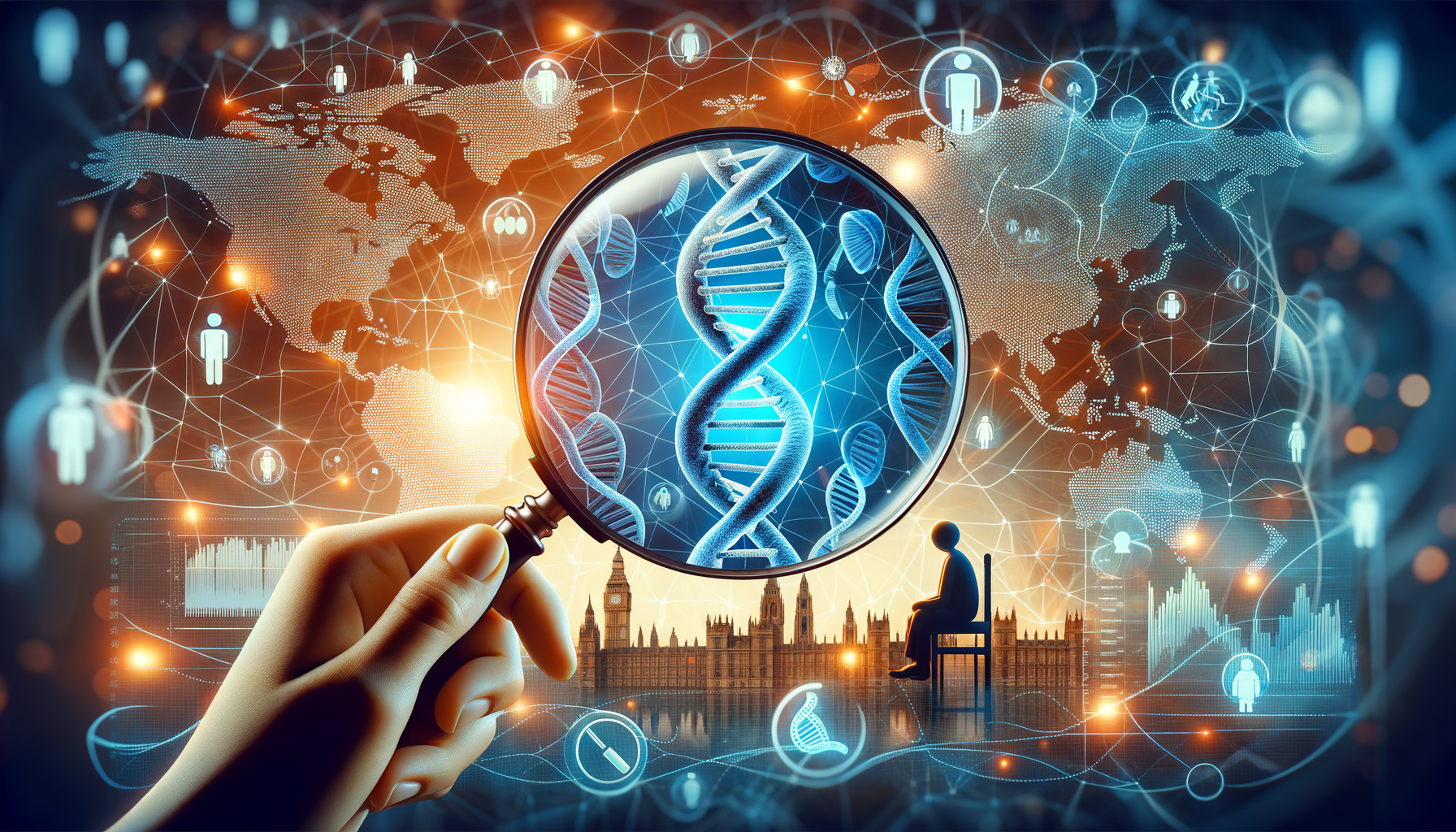Trace Your Roots – Discover Your Ancestral Journey
DNA testing offers a fascinating gateway into understanding our genetic makeup, ancestry, and potential health risks.

Understanding DNA Testing: A Brief Overview
DNA testing has become a revolutionary tool in understanding human genetics and ancestry. It involves analyzing the genetic material found in our cells to provide insights into our origins, health, and familial connections. The process is relatively simple: a sample, often saliva or a cheek swab, is collected and sent to a laboratory where it undergoes analysis. DNA testing can uncover a wealth of information, from identifying ethnic backgrounds to detecting genetic predispositions to certain health conditions.
There are several types of DNA tests available, each serving different purposes. Ancestry DNA tests focus on tracing lineage and ethnic origins, while health-related DNA tests screen for potential genetic health risks. Other tests can determine paternity or familial relationships. The accessibility and affordability of these tests have made them popular among individuals seeking to learn more about their heritage and health.
Despite its benefits, DNA testing raises ethical and privacy concerns. Questions about data security and the potential misuse of genetic information are prevalent. It’s essential for consumers to choose reputable companies that prioritize data protection and transparency.
The Science Behind DNA Testing
At the heart of DNA testing lies the intricate science of genetics. DNA, or deoxyribonucleic acid, is the hereditary material in humans and almost all other organisms. It carries the genetic instructions used in growth, development, functioning, and reproduction. DNA is composed of two strands that coil around each other to form a double helix, a structure first identified by James Watson and Francis Crick in 1953.
Each strand of DNA is made up of four chemical bases: adenine (A), guanine (G), cytosine (C), and thymine (T). The sequence of these bases determines the genetic information available for building and maintaining an organism. In DNA testing, scientists analyze specific regions of the genome to extract meaningful data. These regions can reveal information about an individual’s ancestry, genetic disorders, and traits.
Advancements in technology have made DNA sequencing faster and more affordable. Techniques such as polymerase chain reaction (PCR) and next-generation sequencing (NGS) allow for the amplification and analysis of DNA with high precision. As a result, DNA testing has become a valuable tool for scientific research, medical diagnostics, and personal exploration.
Applications of DNA Testing in Ancestry and Health
DNA testing has diverse applications, with ancestry and health being two of the most prominent areas. Ancestry testing can provide insights into an individual’s ethnic background, migration patterns, and familial connections. By comparing an individual’s DNA with global reference populations, these tests can estimate the percentage of ancestry from different regions around the world. This information can be enlightening for those curious about their heritage and cultural roots.
In the realm of health, DNA testing can identify genetic predispositions to certain diseases and conditions. For instance, tests can reveal an increased risk for conditions such as Alzheimer’s disease, breast cancer, and heart disease. This information can empower individuals to make informed lifestyle and healthcare decisions. Some tests also provide insights into how an individual’s body might respond to certain medications, aiding in personalized medicine approaches.
While DNA testing offers valuable information, it’s important to approach the results with caution. Genetic predispositions do not guarantee the development of a condition, and environmental factors also play a significant role. Consulting with healthcare professionals and genetic counselors can help individuals interpret their results and understand their implications.
Ethical Considerations and Privacy Concerns
As DNA testing becomes more widespread, ethical considerations and privacy concerns have come to the forefront. One major concern is the potential misuse of genetic data. DNA contains sensitive information that could be exploited if not properly safeguarded. There are fears that genetic data could be used by insurance companies, employers, or law enforcement agencies in ways that could harm individuals.
To address these concerns, many DNA testing companies have implemented strict privacy policies and data protection measures. It’s crucial for consumers to thoroughly review these policies before submitting their samples. Understanding how data will be used, stored, and shared is essential for making informed decisions.
Another ethical consideration is the potential impact of DNA testing on familial relationships. Discovering unknown relatives or uncovering unexpected family secrets can have emotional and social implications. It’s important for individuals to be prepared for the possibility of such revelations and to approach the process with an open mind.
The Future of DNA Testing
The future of DNA testing is promising, with ongoing advancements in technology and research. As our understanding of genetics deepens, the potential applications of DNA testing continue to expand. In the medical field, DNA testing could lead to more precise and personalized treatments, improving patient outcomes.
In the realm of ancestry, future developments could provide even more detailed insights into human history and migration patterns. As databases grow and more individuals participate in DNA testing, the accuracy and scope of ancestry analyses will improve. This could lead to a more comprehensive understanding of human diversity and interconnectedness.
However, the future of DNA testing also hinges on addressing ethical and privacy concerns. Establishing clear guidelines and regulations will be essential to ensure that genetic data is used responsibly and ethically. As we move forward, balancing scientific progress with ethical considerations will be key to unlocking the full potential of DNA testing.